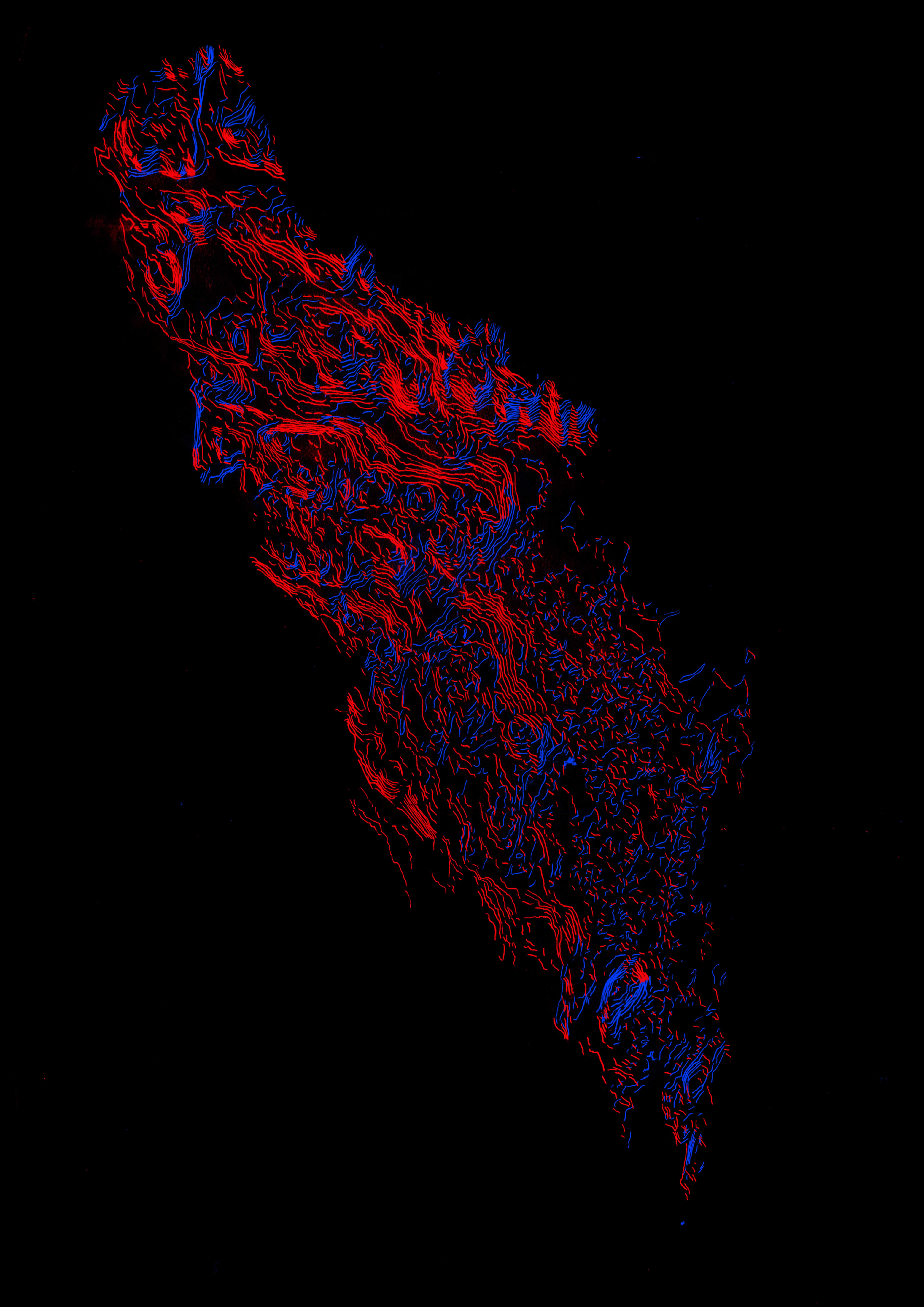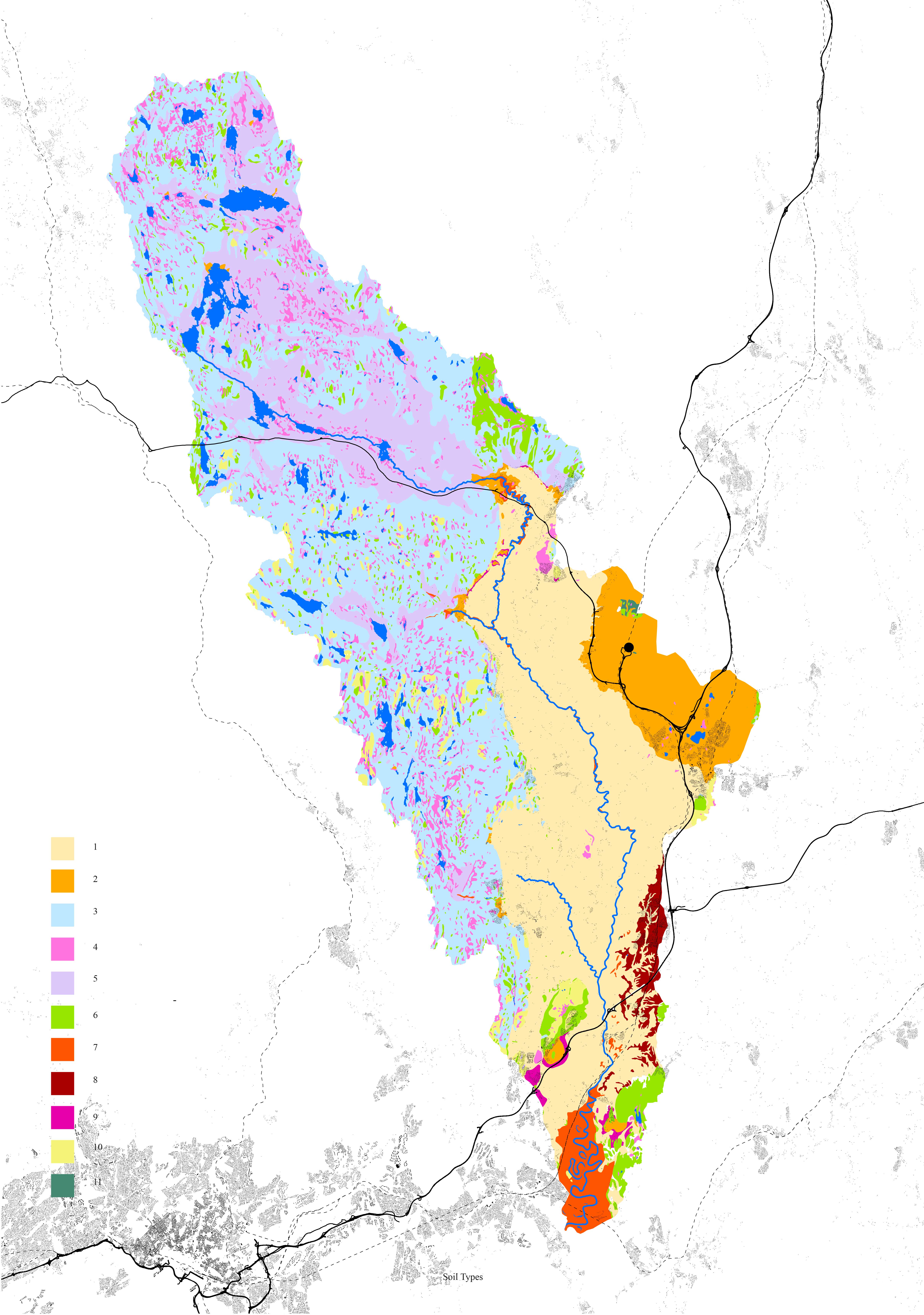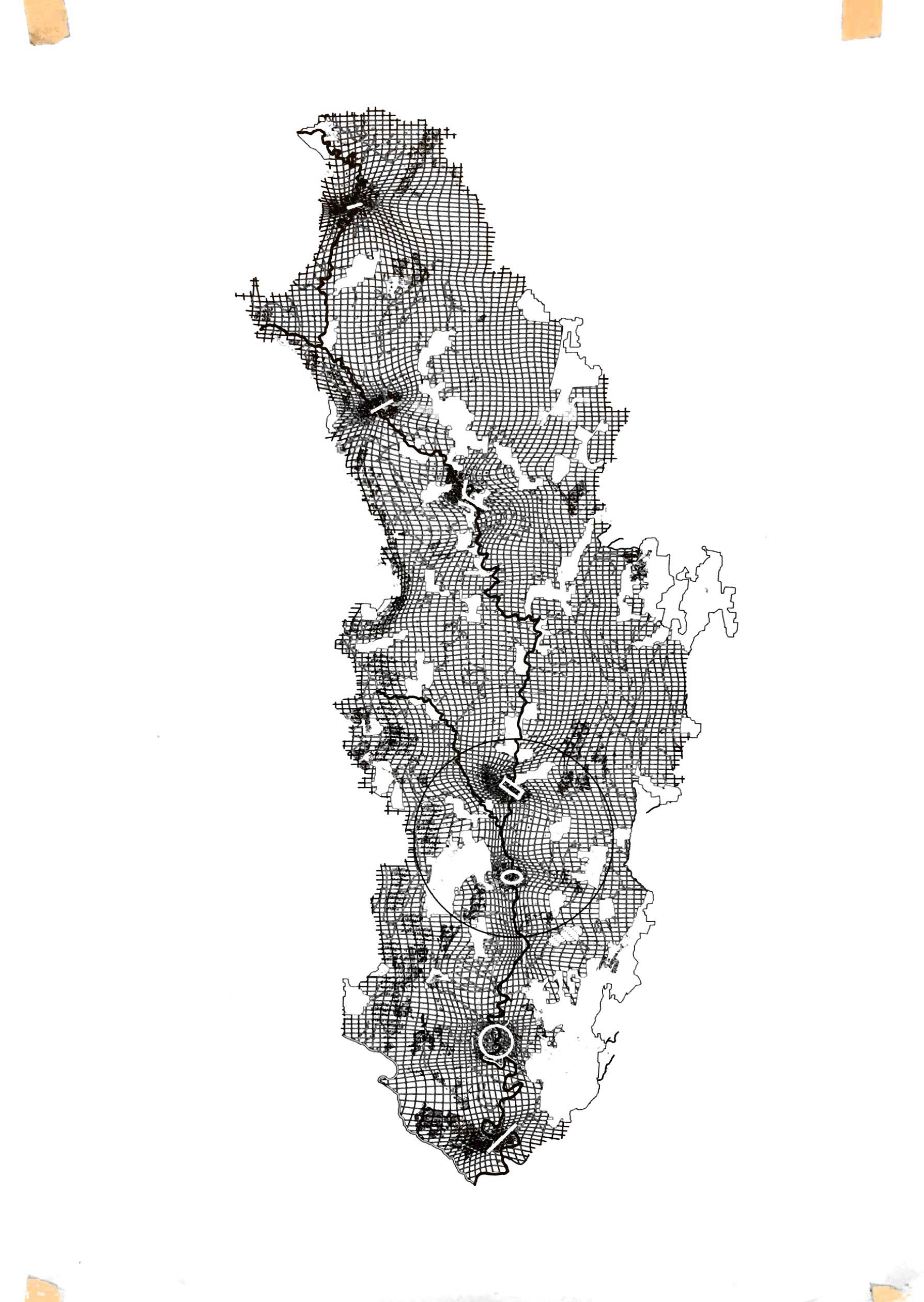FDSK
Flatbread, Drones and Spaces to Kiss in
2018
By using flatbread as a vessel for understanding and describing the territory of Romerike, Norway, we have investigated how natural processes, politics and technology inform and alter the cultural landscape. Previously our tools have demanded how we live and work, but this is changing.
If the emerging technologies demand less from us and the landscape, we are now given the opportunity to re-imagine the current spaces and processes of food production. Our project speculates not on how technology will save us, but the options it provides. If we can be hyper-specific and culturally layered, how might we work, live and eat together?
Negative and positive space is used to reinforce the creation of outside interiors that have significant cultural values through the layering of social activities, but also provide the adequate conditions for new hyper-specific farming practices. The forest and field complement each other in terms of food production, providing an alternative for farmers that practice large monocultural farming.
If the emerging technologies demand less from us and the landscape, we are now given the opportunity to re-imagine the current spaces and processes of food production. Our project speculates not on how technology will save us, but the options it provides. If we can be hyper-specific and culturally layered, how might we work, live and eat together?
Negative and positive space is used to reinforce the creation of outside interiors that have significant cultural values through the layering of social activities, but also provide the adequate conditions for new hyper-specific farming practices. The forest and field complement each other in terms of food production, providing an alternative for farmers that practice large monocultural farming.



